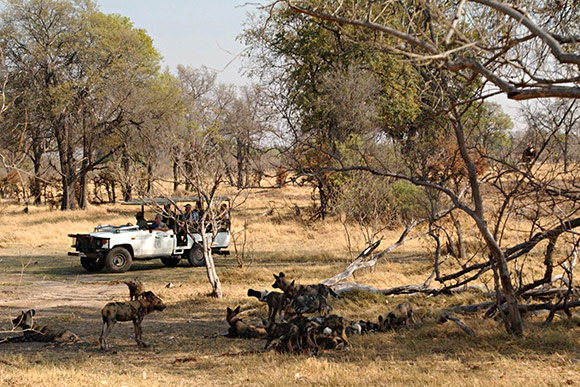Many moons ago, when most of our land was bare of buildings and modern amenities, the people lived off the earth. They cultivated the soil, planted crops, and survived by eating from their own produce, or selling it on. The animals were reared, grown, and utilised for their milk, hide, or their meat.
As the world has evolved, so the open land has become sparser, and the way of natural living lesser. People have been forced to go into big cities to find jobs, and nowhere near to what they were used to growing up. If they were lucky, they would find themselves working on farms and smallholdings, assisting the farmer to plough his lands and look after his animals.
Then, a few years back, in stepped game reserves, with the sole aim of preserving the fauna and flora. The animals generally are given the space to roam and live a life close to their natural surroundings. Some are hunted in controlled hunting projects, others are there to be part of the ever-growing tourist attract of safaris.
The fauna is of utmost importance to some game reserves, however not a priority, the animals being their biggest focus. The fauna must be up kept, of course, as it caters as a food supply to many animals, and many game reserves are aware of the eco importance of plant life on the environment.
So, how do game reserves, like Samara Private Game Reserve, contribute to local economies and the country’s conservation?
The People
The people are important and many locals will find employment within the game reserves, often having specific skills that the game reserves can benefit from. The natives know the land. They know how the vegetation grows, when it’s a good time to move the animals away from a certain area, so that it can flourish and grow, when it’s a good time to bring in a new species of flora.
Many have carried-down knowledge of what plants are best for what animals, although most wildlife knows this better than anyone, but at times it helps to step in and guide.
The Wildlife
As a tourist attraction, whereby foreigners and locals visit and stay to enjoy the wildlife in all its glory, the boost that this gives the economy is huge.
When we add the possibility of hunting to this equation, one finds that it greatly contributes to the GDP as well as direct spending. A whopping $426,000 in contributions to GDP and $326,000 of direct spending comes from the addition of hunting to game reserves. In addition, hunting has created over 53,000 jobs. In fact, in Africa, more than 345 acres of land is solely dedicated to conservation management, and hunting has much to do with that. The land that the animals live on is just as important to their survival, as it is to the sport of hunting.
Putting hunting to one side, the big five, namely the elephant, leopard, rhinoceros, cape buffalo and lion, are always big draw cards for tourists. The idea of being close and personal with the most famous of wild animals, is an enticing pull for most foreigners. This, alone, is what gets people to spend money and book into a game reserve.
The Flora
With game reserves following a variety of different eco systems, they assist with their country’s conservation protection. The eco systems include savannah grasslands, acadia woodlands, valley bushveld, fynbos and riverine forests. By focusing on a particular type of eco system, the game reserve can help the specific wildlife and birds that thrive on those environments.
The Economy
The future of tourism in general and the impact it will have on African countries has been predicted to grow to phenomenal heights in the next 15 to 20 years. In Kenya alone, tourism, especially that which surrounds nature and game reserves, will be a key pillar for development on a national level, as well as a means to lighten the load of poverty and generate revenue through foreign spend.
Many African countries, where game reserves are prevalent, cannot rely on coastlines, offering marine life, sandy beaches, island getaways, and diving as a enticement. So, they need to make the most of their wildlife and flora to bring the tourists to them.
The Environment
The environment, when it comes to game reserves, is as close to nature as one can get nowadays. Yes, you can book into a fancy hotel, with pristine beaches, buffet breakfasts and suppers, as well as spa treatments and the likes, but when you can have all that, and get to live in the middle of natures heaven, then why wouldn’t you?
Contributing to the worlds carbon footprint is a very high reason on many a travellers list, as to why they would visit a certain region or venue. Game reserves are catering to everyone’s creature comforts and still providing them with an African adventure.
The allure of danger will always be a big attraction for most people, and so tourism will always boom in the African safari settings.

